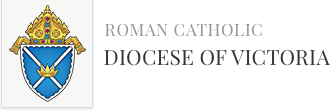The Diocese of Victoria has contributed $1.25M towards the national Indigenous Reconciliation Fund. Applications are now being accepted from Indigenous groups that wish to access these funds for local projects and initiatives.
Click below to download the application package:
Word Version
PDF Version
Application deadlines are November 15, February 15, and May 15
For more information, please contact the Committee at irf@rcdvictoria.org or 250-800-3167
All grants will be made to local Indigenous-led projects and initiatives related to healing and reconciliation for communities and families, culture and language revitalization, education and community building, and dialogues involving Indigenous elders, spiritual leaders and youth, with a focus on Indigenous spirituality and culture.
Previous grant recipients include:
 Ahousaht is one of fourteen Nuu-Chah-Nulth Nations located on the west coast of Vancouver Island. There are over 2,400 registered Ahousaht members, a majority of whom live off-reserve in urban areas. The Ahousaht First Nation received $30,000 to host weekly cultural ceremony practices in the Nanaimo area. Language and culture are the foundation of Nuu-Chah-Nulth identity and governance; the Nuu-Chah-Nulth dream is for language fluency and a vibrant culture that is expressed in daily life.
Ahousaht is one of fourteen Nuu-Chah-Nulth Nations located on the west coast of Vancouver Island. There are over 2,400 registered Ahousaht members, a majority of whom live off-reserve in urban areas. The Ahousaht First Nation received $30,000 to host weekly cultural ceremony practices in the Nanaimo area. Language and culture are the foundation of Nuu-Chah-Nulth identity and governance; the Nuu-Chah-Nulth dream is for language fluency and a vibrant culture that is expressed in daily life.
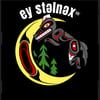 The Indigenous Outreach Workers (IOW) Network is a network of Indigenous outreach and support workers from different agencies who come together to offer ey stelnexw (Lekwungen for "good medicine") to Indigenous people who are living unhoused, precariously housed or who may be using substances. IOW knows that, as Indigenous people, they value and rely on relationships with one another to keep strong. IOW received $30,000 to offer cultural events, dinners, health and wellness supports, and spiritual and cultural care and protocol for families who have lost loved ones from the street.
The Indigenous Outreach Workers (IOW) Network is a network of Indigenous outreach and support workers from different agencies who come together to offer ey stelnexw (Lekwungen for "good medicine") to Indigenous people who are living unhoused, precariously housed or who may be using substances. IOW knows that, as Indigenous people, they value and rely on relationships with one another to keep strong. IOW received $30,000 to offer cultural events, dinners, health and wellness supports, and spiritual and cultural care and protocol for families who have lost loved ones from the street.
 The Ka:'yu:'k't'h'/Che:k'tles7et'h' First Nations (KCFN) are the northern most of 14 Nuu-chah-nulth First Nations. One-third of their members live in the community of Houpsitas in Kyuquot Sound. As a marine access only community, the village of Houpsitas has been experiencing significant food security challenges, made worse by rising grocery costs and the difficulty and expense of transporting food into the community. Through a partnership between Loaves and Fishes in Nanaimo and The Society of St. Vincent de Paul's Campbell River North Island Outreach Team, KCFN will be receiving a monthly donation of 800 hundred pounds of staple food supplies. A $10,000 from the Indigenous Reconciliation Fun will offset the costs of shipping this food to the community.
The Ka:'yu:'k't'h'/Che:k'tles7et'h' First Nations (KCFN) are the northern most of 14 Nuu-chah-nulth First Nations. One-third of their members live in the community of Houpsitas in Kyuquot Sound. As a marine access only community, the village of Houpsitas has been experiencing significant food security challenges, made worse by rising grocery costs and the difficulty and expense of transporting food into the community. Through a partnership between Loaves and Fishes in Nanaimo and The Society of St. Vincent de Paul's Campbell River North Island Outreach Team, KCFN will be receiving a monthly donation of 800 hundred pounds of staple food supplies. A $10,000 from the Indigenous Reconciliation Fun will offset the costs of shipping this food to the community.
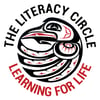 The Literacy Circle provides a safe, supportive, and respectful space for English literacy training to Indigenous Elders and adults, residential and day school survivors, and intergenerational survivors. Many survivors did not receive an education during their time at school, and the trauma and abuse experienced there left many with a great reluctance to enter a traditional classroom setting. As a result, many survivors are living without critical literacy skills. The Literacy Program received $30,000 to expand its programs from the Nanaimo area to Campbell River, Port Alberni, the Cowichan Valley, and Victoria.
The Literacy Circle provides a safe, supportive, and respectful space for English literacy training to Indigenous Elders and adults, residential and day school survivors, and intergenerational survivors. Many survivors did not receive an education during their time at school, and the trauma and abuse experienced there left many with a great reluctance to enter a traditional classroom setting. As a result, many survivors are living without critical literacy skills. The Literacy Program received $30,000 to expand its programs from the Nanaimo area to Campbell River, Port Alberni, the Cowichan Valley, and Victoria.
 A TLC teacher shares how to create a story board
A TLC teacher shares how to create a story board
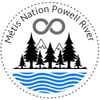 The Métis Nation Powell River includes Métis residing in the City of Powell River and qathet Regional District (Texada Island, Lasqueti Island and Savary Island). They received $30,000 to hold art workshops, community dinners, Elder coffee gatherings, and nature walks. Each event holds space for learning, passing on knowledge, and opens discussion amongst their members to explore the culture and traditions taken from them over many generations.
The Métis Nation Powell River includes Métis residing in the City of Powell River and qathet Regional District (Texada Island, Lasqueti Island and Savary Island). They received $30,000 to hold art workshops, community dinners, Elder coffee gatherings, and nature walks. Each event holds space for learning, passing on knowledge, and opens discussion amongst their members to explore the culture and traditions taken from them over many generations.
Since receiving their grant in February 2023, Métis Nation Powell River has brought in Lisa Shepherd, a Métis Artist, to teach members to jig, lead a workshop on quilling, and do a presentation on Métis culture and traditions as it applies to today. The Nation has distributed grocery cards to allow members to purchase nutritious food after the additional expenses brought by winter's high costs of heating, fuel, and electricity, and are hosting Seniors' Fit exercise classes, which are followed by light snacks and connection with their Elders/Seniors community. Knowledge keepers use this opportunity to pass on to the next generation.
We couldn't have done this without the support of the Reconciliation Grant. Connection is healing and our workshops are providing a safe venue to do just that.
- Métis Nation Powell River
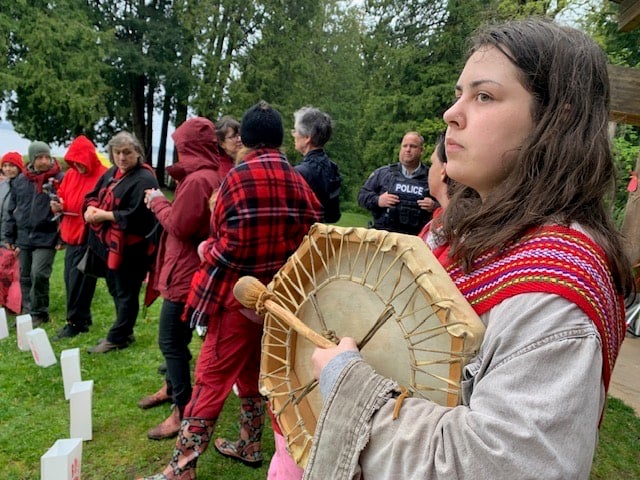
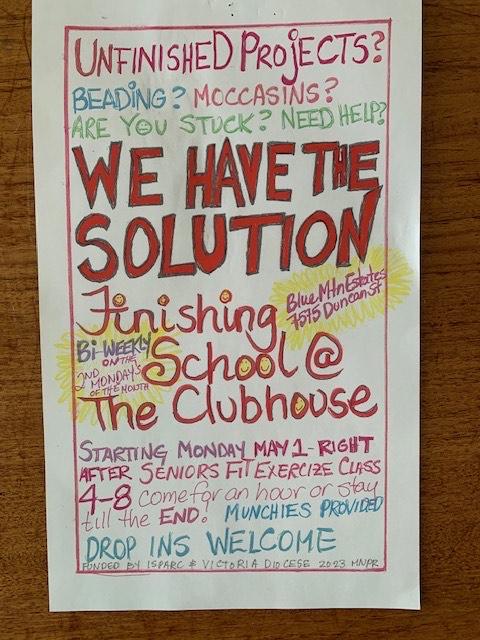
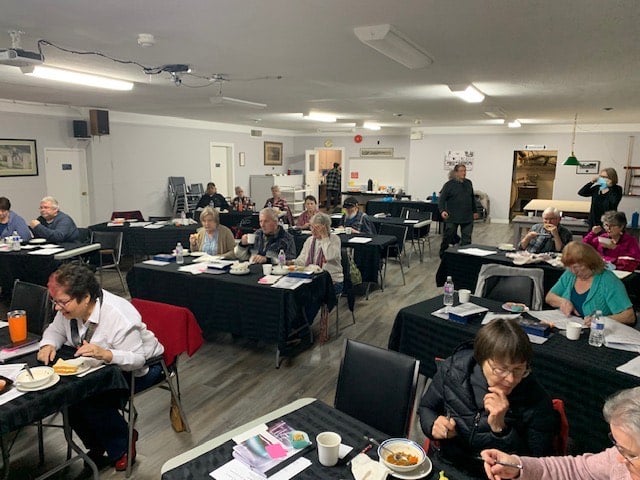
 The Michif Language Revitalization Circle (MLRC) supports Métis in reclaiming self-identity through learning of the Michif Language. They received $30,000 to host three public events to promote their language and culture revitalization & education programs. These events also give MLRC’s participants the important opportunity to practice Michif Language in a public space and context, and for the general public to witness Michif language and culture. The language learning journey is a spiritual and healing endeavour, and this project will promote a stronger community of language learners.
The Michif Language Revitalization Circle (MLRC) supports Métis in reclaiming self-identity through learning of the Michif Language. They received $30,000 to host three public events to promote their language and culture revitalization & education programs. These events also give MLRC’s participants the important opportunity to practice Michif Language in a public space and context, and for the general public to witness Michif language and culture. The language learning journey is a spiritual and healing endeavour, and this project will promote a stronger community of language learners.
Since receiving their grant in March 2023, MLRC has held two events. In March, they hosted a lecture and Q&A session with Michif Fluent Speaker Brousse Flammand on the Creation Story of the Michif (Métis) People, Language, and Culture (Spirituality and Medicine). The presence of a Michif Fluent Speaker in Victoria was very important and rare, as most Michif Fluent Speakers reside outside of BC.
I am glad that events like this occur so we can learn about and reclaim our Michif culture. I am proud to be Michif. Maarsii.
- Lecture participant
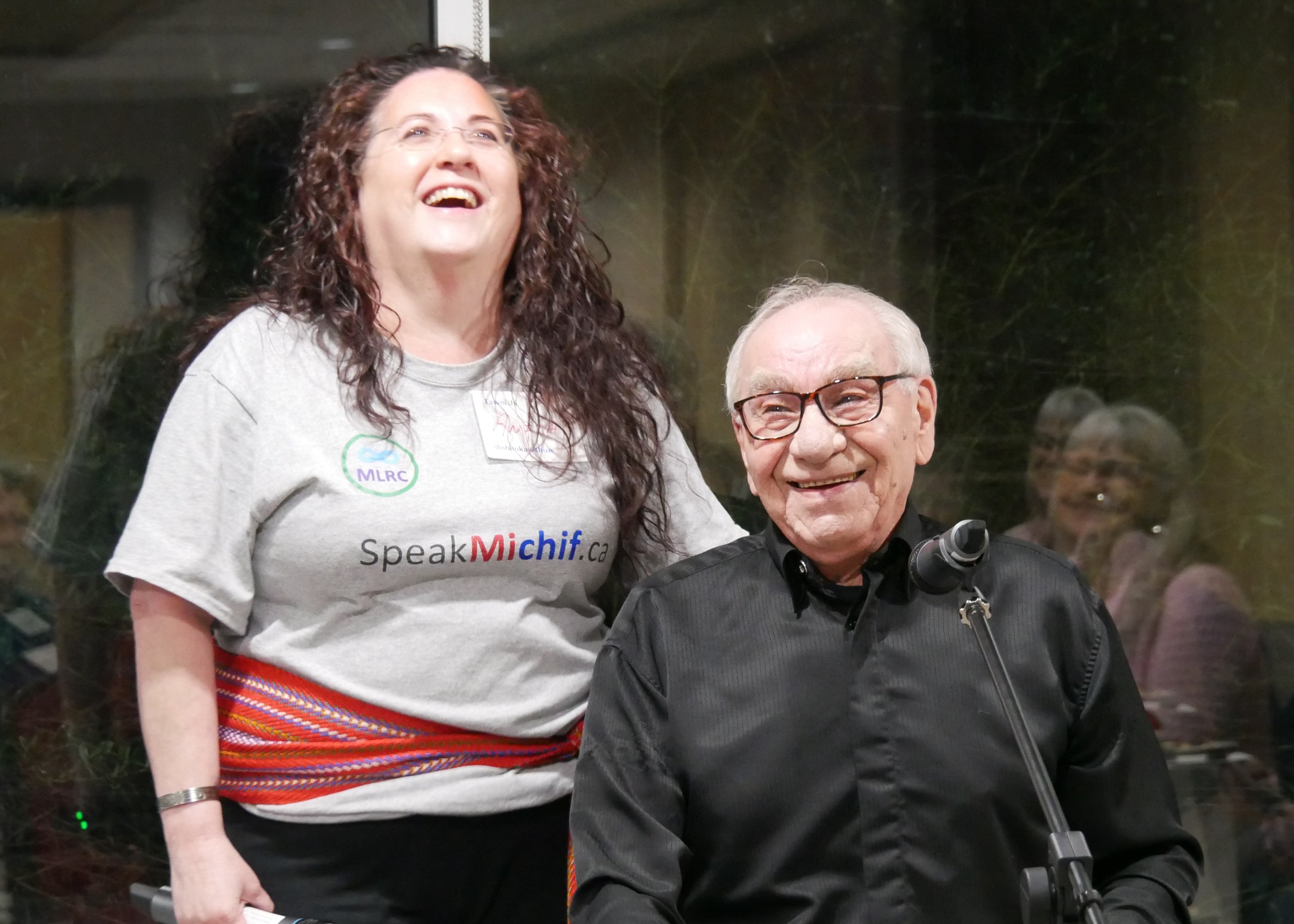
In June 2023, MLRC set up an informational booth/tent at the National Indigenous Peoples Day activities held at Royal Roads University. At this event, MLRC had the opportunity to present the SpeakMichif.ca website to attending members of the public, inform them about their Language Circles and Language Classes, and sign up new members for these programs.
The new tent! It was visible all the way from the lagoon! People definitely knew who we were and what we did.
- MLRC volunteer
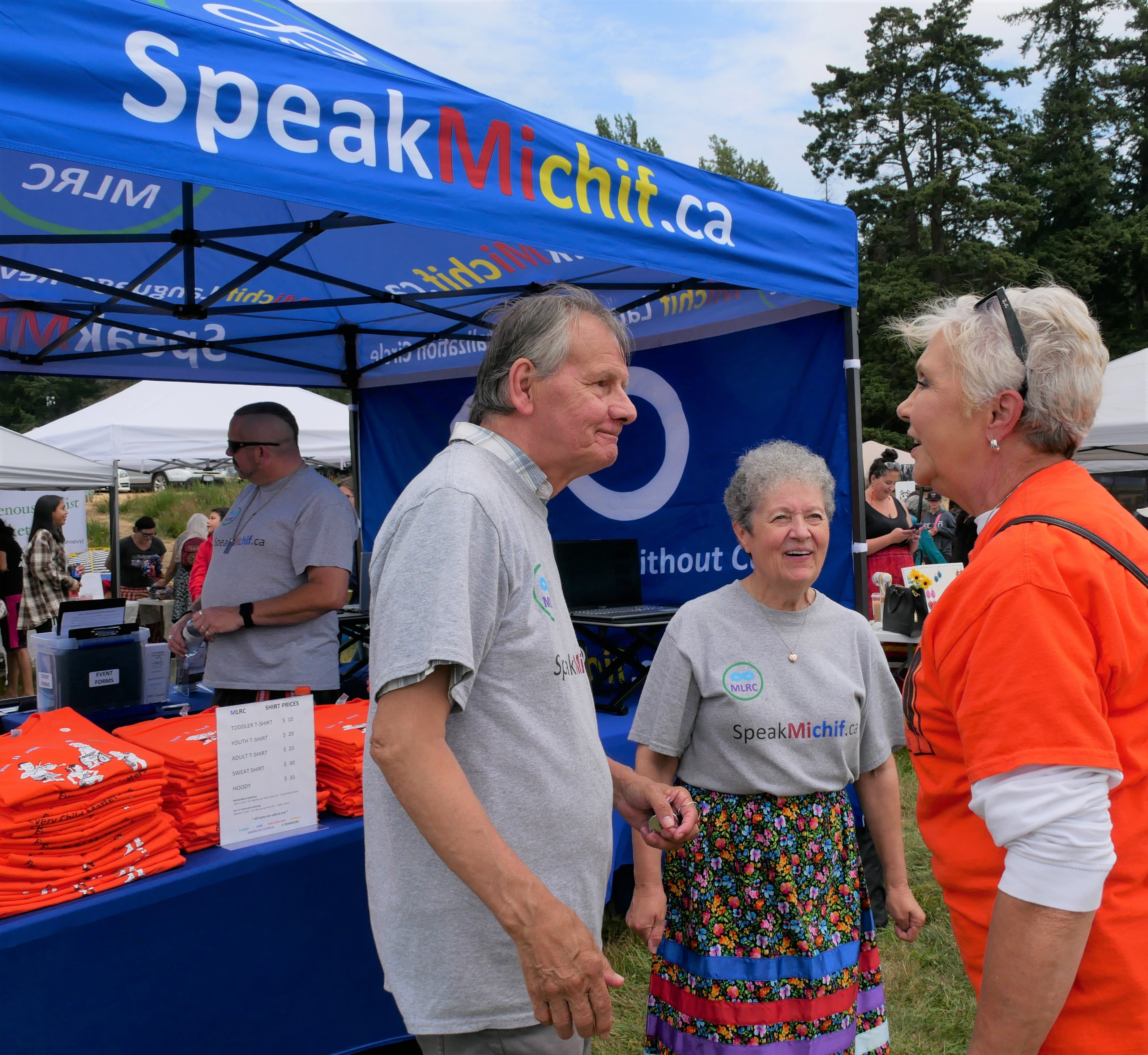
 The Mowachaht/Muchalaht First Nation is located on the west coast of Vancouver Island, centred on the villlage of Yuquot on Nootka Island. They received $30,000 to support the continuing restoration of St. Pius X Church at Yuquot. Opened in 1958 as the third Catholic church to be built at Yuquot, the church was the scene of many community gatherings, weddings, funerals and religious events before being deconsecrated in 1997. It now serves as a community gathering place and interpretive centre for tourists who visit Yuquot.
The Mowachaht/Muchalaht First Nation is located on the west coast of Vancouver Island, centred on the villlage of Yuquot on Nootka Island. They received $30,000 to support the continuing restoration of St. Pius X Church at Yuquot. Opened in 1958 as the third Catholic church to be built at Yuquot, the church was the scene of many community gatherings, weddings, funerals and religious events before being deconsecrated in 1997. It now serves as a community gathering place and interpretive centre for tourists who visit Yuquot.
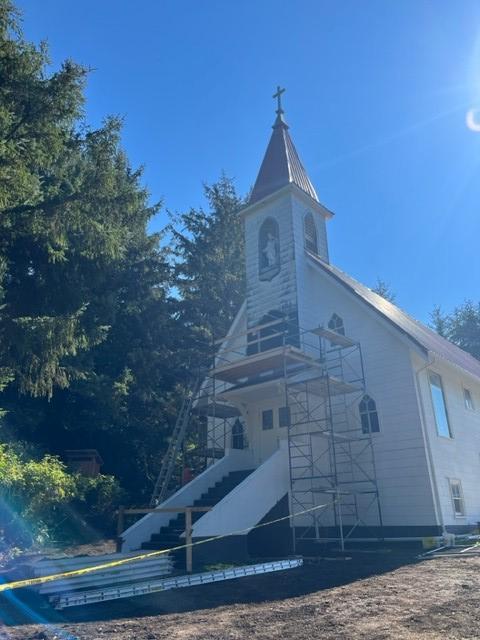
 The Oasis Society is a not-for-profit urban Indigenous organization working with vulnerable Indigenous people living on the streets of Victoria and those involved in street life. They received $30,000 to support the hiring of a Program Coordinator to support their base program, Integrated Recovery and Holistic Wellness. The Program Coordinator position is centered around the revitalization of Indigenous knowledge via the incorporation of Elders, seniors, and older adults in Oasis programming.
The Oasis Society is a not-for-profit urban Indigenous organization working with vulnerable Indigenous people living on the streets of Victoria and those involved in street life. They received $30,000 to support the hiring of a Program Coordinator to support their base program, Integrated Recovery and Holistic Wellness. The Program Coordinator position is centered around the revitalization of Indigenous knowledge via the incorporation of Elders, seniors, and older adults in Oasis programming.
Without your generous support, we would not have been able to provide much of our successful programming in the past fiscal year... the impact of creating culturally supportive programming for the benefit of older Indigenous adults and Elders stretches beyond monetary value and will propel the Oasis Society forward into more meaningful community connections in the years to come.
- The Oasis Society
 Activities at Oasis' Weekly Women's Group included beaded lanyard making
Activities at Oasis' Weekly Women's Group included beaded lanyard making
 Tuesday night dinners include an opening prayer, drumming, and spiritual cleansing.
Tuesday night dinners include an opening prayer, drumming, and spiritual cleansing.
When I come here, and I hear the drums and smell the smudge… I feel alive
-Elder participant
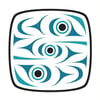 QomQem Coastal Connections is an all-Indigenous team of outreach workers and peer workers with lived experience that works in partnership with Peers Victoria Resources Society. They received $29,980 to support a drop-in centre that offers cultural programming, including food from a local Songhees cook, Elder visits, and cultural education delivered by local knowledge keepers, artists and Elders. The drop-in program is accessed by people with current and former histories of sex trade involvement, 35% of whom are Indigenous. The funds will also be used to deliver food and outreach supports to people living outside.
QomQem Coastal Connections is an all-Indigenous team of outreach workers and peer workers with lived experience that works in partnership with Peers Victoria Resources Society. They received $29,980 to support a drop-in centre that offers cultural programming, including food from a local Songhees cook, Elder visits, and cultural education delivered by local knowledge keepers, artists and Elders. The drop-in program is accessed by people with current and former histories of sex trade involvement, 35% of whom are Indigenous. The funds will also be used to deliver food and outreach supports to people living outside.
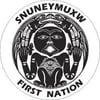 The Snuneymuxw are a vibrant First Nation of the Coast Salish People, residing in the centre of Coast Salish territory on the eastern coast of Vancouver Island, with villages on the Fraser River and waterways in the Gulf Islands. Snuneymuxw First Nation received received $30,000 to allow 13 of its members to participate in the Roots to Thrive Ketamine-Assisted Therapy program for individuals living with unresolved trauma and chronic mental health conditions.
The Snuneymuxw are a vibrant First Nation of the Coast Salish People, residing in the centre of Coast Salish territory on the eastern coast of Vancouver Island, with villages on the Fraser River and waterways in the Gulf Islands. Snuneymuxw First Nation received received $30,000 to allow 13 of its members to participate in the Roots to Thrive Ketamine-Assisted Therapy program for individuals living with unresolved trauma and chronic mental health conditions.
Ticmup Society is a non-profit society created in January 2021 with the purpose of advancing Nuu-chah-nulth family cultural teachings, language, and art through collaborative relationships with Nuu-chah-nuth and non-Indigenous allies. "Ticmup" is a Nuu-chah-nulth phrase that means "how to survive". The Society recently found a permanent home for a cultural centre on the territories of the Hupacasath Nations; a grant of $30,000 from the Indigenous Reconciliation Fund will help to complete the structural aspects of the centre and to construct a deck and covered area that will be used for cultural gatherings, performance and other important business.
 The Ticmup Society Cultural Building under construction in July 2024
The Ticmup Society Cultural Building under construction in July 2024
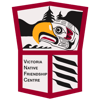 The Victoria Native Friendship Centre serves 20,000 off-reserve Indigenous citizens from Sooke to Sidney BC. They received $30,000 to support an active community of 289 urban Indigenous Elders. These Elders provide cultural support for youth, families and community members longing for a cultural connection, lead craft sessions (eg, cedar weaving, drum making, beading, etc), and are instrumental in the free weekly Indigenous language classes offered at the Centre to youth, families and community members who want to revitalize their language.
The Victoria Native Friendship Centre serves 20,000 off-reserve Indigenous citizens from Sooke to Sidney BC. They received $30,000 to support an active community of 289 urban Indigenous Elders. These Elders provide cultural support for youth, families and community members longing for a cultural connection, lead craft sessions (eg, cedar weaving, drum making, beading, etc), and are instrumental in the free weekly Indigenous language classes offered at the Centre to youth, families and community members who want to revitalize their language.

VNFC Elders offered Tipi Teachings at National Indigenous People's Day in June 2023 and the South Island Powwow in September 2023
Indigenous Reconciliation Fund Committee
Grant applications will be reviewed by the local Indigenous Reconciliation Fund Committee, who will identify the projects that will have the maximum positive impact in our diocese. The Committee will work closely with local Indigenous partners to ensure that the proposed projects are deemed by Indigenous communities as being significant and meaningful in terms of facilitating reconciliation.
The members of the local Indigenous Reconciliation Fund Committee are listed below; click on their names to learn more about them.
 Anthony Black Sxelo’os is Coast Salish with deep roots in Cowichan and Penelakut. He has been a dedicated funeral director for over 18 years, serving multiple communities across Vancouver Island. Throughout his vocation, Anthony has supported families of all faiths and denominations, and he is honored to have had the opportunity to serve many Indigenous families with care and respect.
Anthony Black Sxelo’os is Coast Salish with deep roots in Cowichan and Penelakut. He has been a dedicated funeral director for over 18 years, serving multiple communities across Vancouver Island. Throughout his vocation, Anthony has supported families of all faiths and denominations, and he is honored to have had the opportunity to serve many Indigenous families with care and respect.
Outside of his work, Anthony enjoys traveling the world with his spouse and their two beloved corgis.
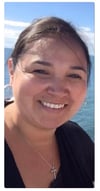 Hello, my name is Tsulotsulwut, my English name is Carmen George. I was born & raised here on Penelakut Island, where there was once a residential school. My mother attended here on Penelakut Island, and I am a first generation survivor of the IRS system.
Hello, my name is Tsulotsulwut, my English name is Carmen George. I was born & raised here on Penelakut Island, where there was once a residential school. My mother attended here on Penelakut Island, and I am a first generation survivor of the IRS system.
I have four children and two grandchildren.
I’ve been a certified dental assistant for 18 years now & work in my community with a dentist, hygienist & dental therapist.
 Fr. Dean Henderson is Rector of St. Andrew's Cathedral in Victoria. He previously served for 5 years as Pastor of Our Lady of the Rosary Parish in Langford, 12 years as the UVic and Camosun chaplain, as and 4 years as the Pastor of St. Rose of Lima in Sooke. After a sabbatical/mission in the Diocese of the Yukon in 2012, Fr. Dean has been committed to a healing path of friendship with Indigenous Peoples. The Parish of Our Lady of the Rosary has been a cultural home for Nuu Cha Nulth peoples, particularly the local Ahousahts, and he regularly visits the nations of Pacheedaht and T’Sou-ke. As a former Anglican priest who was received into full communion with the Catholic Church in 1999, Fr. Dean is married to Linda with whom he has 5 grown children and three grandchildren.
Fr. Dean Henderson is Rector of St. Andrew's Cathedral in Victoria. He previously served for 5 years as Pastor of Our Lady of the Rosary Parish in Langford, 12 years as the UVic and Camosun chaplain, as and 4 years as the Pastor of St. Rose of Lima in Sooke. After a sabbatical/mission in the Diocese of the Yukon in 2012, Fr. Dean has been committed to a healing path of friendship with Indigenous Peoples. The Parish of Our Lady of the Rosary has been a cultural home for Nuu Cha Nulth peoples, particularly the local Ahousahts, and he regularly visits the nations of Pacheedaht and T’Sou-ke. As a former Anglican priest who was received into full communion with the Catholic Church in 1999, Fr. Dean is married to Linda with whom he has 5 grown children and three grandchildren.
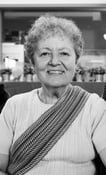
Bertha Landrie is a French Cree Metis Elder. She is a Metis Role Model for SD61 and SD62, and she and her husband Joe are members of the Elder's Initiative at Camosun College. Bertha is a Metis History and Culture Presenter, and a Co-founder and Matriarch for MLRC, a Michif Revitalization Program. Their website, www.speakmichif.ca, is a learning tool to help teach and promote the Michif Language.
Oo-Kla-Shish ?Uu-Kwa-Qum is from Manhousaht/Ahousaht and lives and works in Greater Victoria as an advisory teacher for SD61 and a reservist in the Canadian Forces. ?Uu-Kwa-Qum is the hereditary Chief (Haa-wilth) of Manhousaht or Mot-nos. James is also an artist and foster parent, and a survivor of Christie Residential School.
